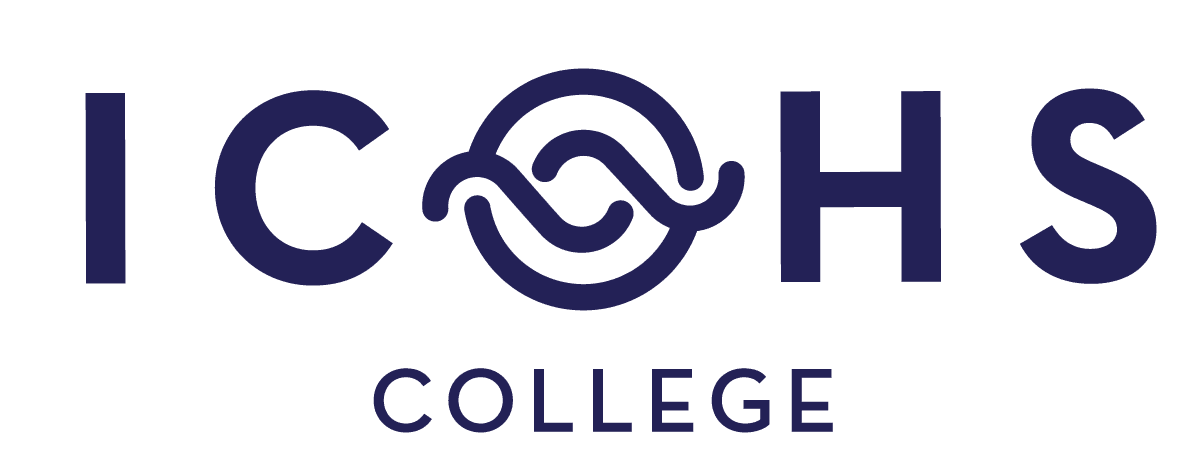As society has witnessed the impact of crushing student loan debt, many people are seeking jobs that do not require the extended time and money that a college or university program requires.
Students and hiring managers alike are realizing that many of the certifications offered by companies like Google and CompTIA are capable of producing highly skilled employees.
Many millennials seek jobs in different fields after realizing that the expensive bachelor’s degrees are not helping them earn a living wage to support their families. Since the IT field contains some of the highest-paying career paths, the demand for skilled certifications has skyrocketed. When it comes to IT certifications vs degree though, which one should you choose? Let’s examine the differences below.
[toc]What is a Certificate?
A certificate is an acknowledgment that you have completed training in a particular field. You can earn certificates at many levels, including university certificate programs. They are proof of education, but they do not lead to a designation.
Learn more about the IT certificate programs from ICOHS College. We offer the training needed to become an IT Network Specialist or an IT Systems Administrator. Upon completion, students will be prepared for a number of careers in information technology. No prior experience is necessary!
A certification shows that you have demonstrated competency in a particular skill or field. Generally, you need to pass a standardized exam. Often, certifications also require hands-on experience or a specific sequence of certification courses.
For example, CompTIA is known for its CompTIA A+ certification. It requires that you write the 220-1001 & 220-1002 exams, which allows them to say that you have met their standards for accreditation.
What is a Degree Program?
A degree is earned at a university. Usually, four years of study are required. Degree programs require many students to complete course work in English, Math, and Social Sciences, along with courses in your specialty.
University courses are often theory-based instead of skill-based, and your IT degree program will not generally prepare you for any specific career path. Instead, it will allow you to apply knowledge to a variety of IT-related jobs. A Computer Science major, for example, can earn a job doing anything from software tester to app developer.

IT Certifications vs Degree: What’s the Difference?
Time Commitment
A degree is usually a 3-4 year commitment or eight semesters. Since bachelor’s degree programs have become a standard in post-secondary education, many people choose to continue for another few years to obtain advanced degrees. A graduate degree in Technology Management and Information Technology are two common study paths.
IT certifications, on the other hand, can be completed relatively quickly. Depending on your study schedule, a certification from big names such as Google, CompTIA, and Microsoft can usually be completed in under six months. These courses are to the point and can provide knowledge for both beginners and experienced employees alike.
You can earn your CompTIA Security+ Certification from ICOHS College in just five weeks. Walk away ready to become an entry level computer and network security technician.
A school like ICOHS offers a convenient IT Network Specialist Certificate program that allows you to complete preparation for CompTIA A+, CompTIA Network+, CompTIA Security+, and Cisco Certified CCNA in under a year. They offer both in-person and online hybrid classes, as well as hands-on labs to help you practice your skills at the same time.
Cost and Affordability
IT degree programs are notoriously expensive. Student loan debt in America climbed to 1.73 trillion dollars in the second quarter of 2021. The total cost of a college degree is an economic concern for a generation of students who cannot support themselves, their families, or invest in the real estate market.
While computer science degrees are valuable, and bachelor degree holders often earn around $25,000 a year more, they are not the only path to financial success in an IT career. Master’s degrees or an advanced degree further increase earning potential.
Certifications are a much safer financial option. For those looking to switch careers, you can earn plenty of certifications for under $500.
Google hosts their professional certifications on Coursera, where you only pay the platform fee per month until you have completed the coursework. CompTIA offers a range of study materials and preparation classes and also offers monthly payment options.

Requirements
Bachelor’s degrees require general entry into a school and specialization. You need a high school diploma with academic scores or high school equivalents to gain acceptance.
Degree programs require students to obtain specific scores across multiple subject areas to participate in a chosen degree program. Master’s degrees require extensive coursework with high scores.
Certifications are much more lenient. While a program like Google Cloud requires experience and previous credentials, there is usually an entry-level certification to help you get your foot in the door. You can complete some courses at a community college, which sometimes offers college credit for other programs.
Style of Training
Bachelor’s degrees usually require either in-person or online university classes. The instructor usually has a Ph.D. or Master’s degree in their specialty, and they require labs, essays, or exams as a form of evaluation.
Some schools allow students to watch lectures and study at their own pace for degrees, but they are usually geared towards mature students.
You can typically complete certificate programs on your own time. The companies that host these courses understand that most of their audience is unavailable for specific class times. They provide videos, skills labs, and various online resources to aid you in your education.
Focus of Training
Training for an IT program is very hands-on. It focuses directly on the skills needed to complete the certification, sare no electives or alternative classes are needed to meet requirements. Some certificates like CompTIA offer practice labs to ensure you are confident in performing a skill.
ICOHS offers an IT Systems Administrator program. Their focus is providing quality instruction so new students can become IT professionals in CompTIA A+, CompTIA Network+ +, CompTIA Server +, and CompTIA Security+. A program like this is very skill-oriented.
Degrees focus on offering a well-rounded education. Required English, Math, Science, and Social Sciences courses are not uncommon for degrees. These courses are often three credit hours and take up a lot of study time.
Getting Hired After Training
Where you can get hired after obtaining a degree and certification may differ, as could the type of job you get hired for. While the information technology industry is pivoting to accepting IT certifications as valid paths to hiring, some companies are stuck in their ways and place a higher value on a college degree.
In the end, it is essential not to get discouraged. Companies willing to accept certification vs. degree tend to be more progressive and focused on talent, and some even offer tuition reimbursement as a hiring incentive. Even if a degree can help someone land a more advanced position, entry-level salaries in the tech industry are nothing to dismiss.
When Is an IT Certification the Better Option?
Information technology certificate programs are an excellent option for those looking to gain knowledge and build their resume without spending thousands of dollars on college education. Since tech is ever-evolving, even college graduates often complete certificate courses to keep up-to-date in the field.
Learn about the best IT Certifications for beginners. Find out what opportunities are available with little to no experience.
When Is an IT College Degree the Better Option?
An IT degree is the best option if you know you want to work in the tech industry and use it as a platform for higher education or government positions. If you plan to continue with graduate work to specialize or teach at a college level yourself, an IT degree program is the logical educational path.
How to Choose Between Certificate and Degree Programs
Choosing a certificate program or bachelor’s degree depends on where you are in life. If you have already earned a degree and want to make a career change, certifications are the way to go. You don’t need to complete a bachelor’s program to be successful in an IT career.
Alternatively, if you are looking for a way to jump into a new, high-paying career quickly, a certification is the best option. If you want to further your education at a later date, you can always consider this later.

Career Outlook
The future outlook for the IT industry is bright. The US Bureau of Labor Statistics predicts that between 2020-2030, there will be a 13% increase in IT jobs, which indicates around 667,600 new job openings. They state that the median IT annual wage is $91,250, well above other industries.
With a continuing hot job market, it is worth considering the best path towards an IT path. Research different certifications available and which one suits your time, budget, and skillset.

FAQ
Can IT certifications replace college degrees?
In some instances, yes. Many companies are beginning to drop their four-year degree requirement in favor of up-to-date certifications, soft skills, and industry knowledge. Being able to complete the work efficiently is the most critical factor.
What IT certifications should you get first?
Whichever particular certification works best for your current lifestyle and budget. Explore the main differences between programs to see what fits your previous skills and knowledge. Due to their short length and reasonable price range, nothing is stopping you from taking multiple programs.
Is an IT certificate worth it?
If an IT certificate helps you meet your career goals, then they are worth it. Everyone has to choose the education path that best suits their pursuit of more knowledge and helps them become well-rounded employees.
Conclusion
When choosing between IT certifications and a bachelor’s degree, it comes down to your time, budget, and career goals. Both an IT degree and certificate hold their own value. It is entirely possible to enter the information technology field within a few months and gradually work up to a management position.
There will be endless job opportunities in the information technology industry over the coming decade, and many employers are placing value on certifications.
Becoming certified is easier than ever, and many of these certifications give you the knowledge to advance your career rapidly.
A certificate in information technology, cyber security, and cloud computing can help get your foot in the door at a data center or information technology firm. ICOHS College offers a range of certificate programs and Bootcamps including:
Scholarships and title IV funding are also available to help students cover the cost of tuition. Call us to speak to one of our representatives (858) 581-9460 or contact us via email for more information on financial assistance.
Students attending ICOHS College will have full access to our career counseling program. They’ll also receive lifetime job placement assistance after graduation.
ICOHS College is accredited by the ACCET (Accrediting Council for Continuing Education, accet.org). To learn more about ICOHS College accreditations and licenses, visit our accreditation page.










